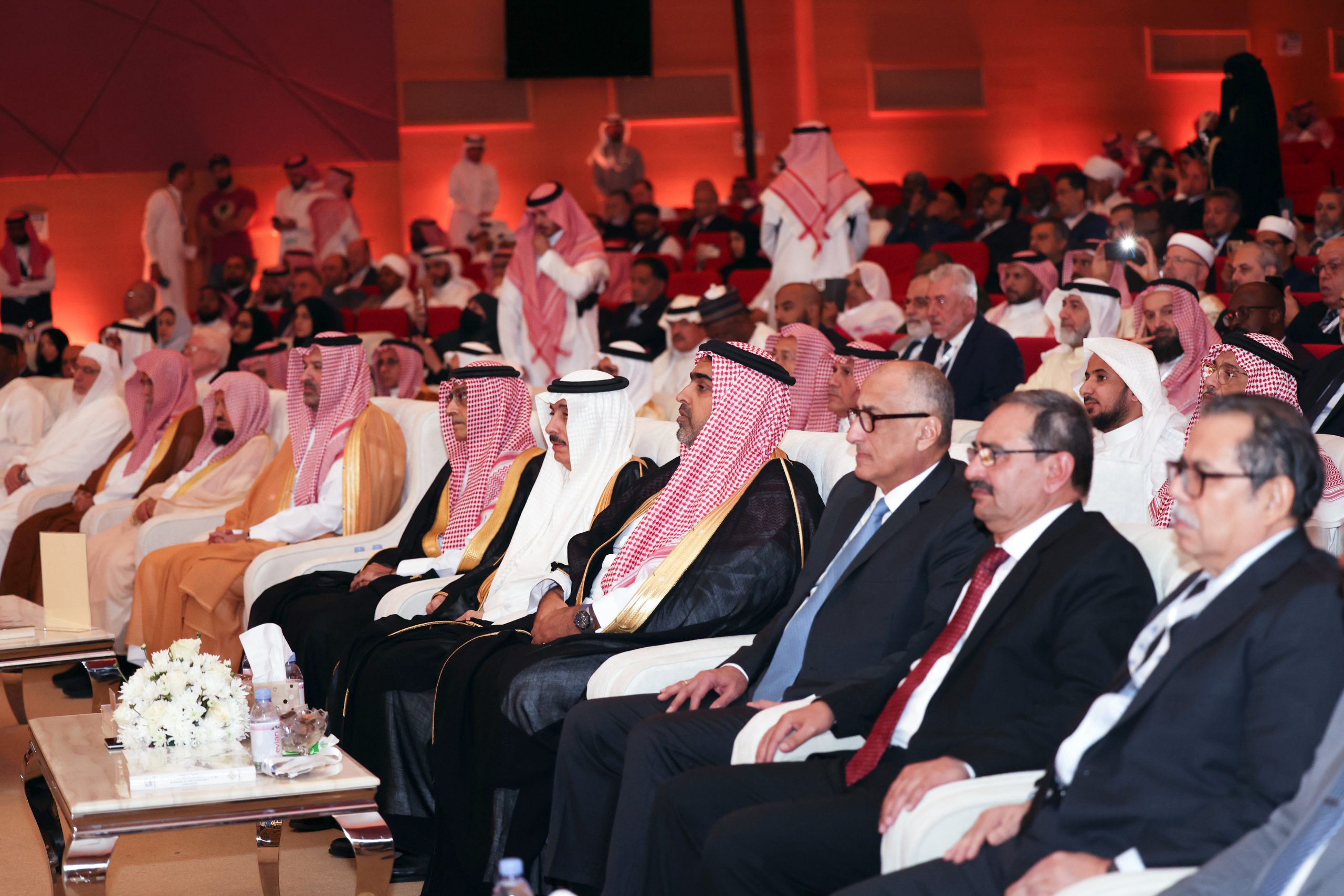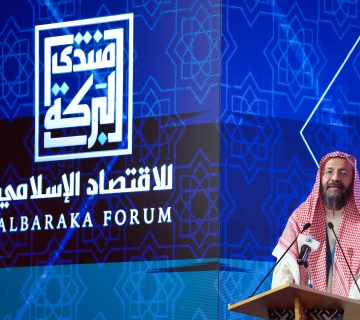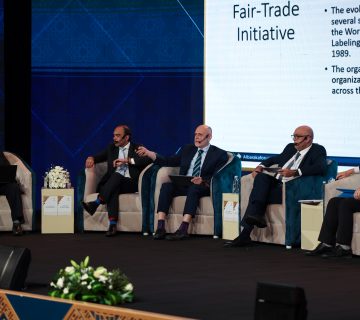The 43rd Al-Baraka Symposium on Islamic Economics was wrapped yesterday, on Thursday. The University of Prince Mugrin in Madinah served as its host. The title of the panel discussion was “Islamic Economy and Sustainability between Reality and Prospective,” and it was presided over by Dr. Hamed Merah, the CEO of the Saudi Center for Commercial Arbitration, Mr. Yousef Khalawi, Secretary General of Albaraka Forum for Islamic Economy, along with Dr. Ashraf Md Hashim, Chairman of the Shariah Advisory Council of Bank Negara Malaysia (SAC), Dr. Osaid Kailani, the Global Head of Shari’a at ADIB, and Mr. Faraz Khan, the Founder & Director of SEED Ventures – UK.
The panelists of the panel discussion proposed the development of the Madinah Index of Sustainability in the Islamic Economy “to showcase our commodities to the world, make them hear our voice, and guard ourselves from imposing what violates our principles and ideals.” Dr. Merah emphasized that the world is collapsing in the face of difficulties, including sustainable development, which is measured annually through a series of efforts. He was curious about the Islamic economy’s role in worldwide efforts, as well as its foundations in the aims and branches of jurisprudence. He also emphasized that Sharia encompasses more than these initiatives and fulfills sustainability in addressing poverty, unemployment, health, and education, as well as attempting to read the reality of our Islamic economy and the broad spectrum of its institutions in terms of sustainable development initiatives.
Mr. Yousef Khalawi, on the other hand, answered a question about the degree of the Islamic economy’s worries regarding the international effort by pointing out the presence of two systems, one which is the Islamic and the other which is the traditional or man-made system.
He also advocated for reducing the effects of brutal capitalism corruption, which prioritizes profit above broader environmental and social concerns. Mr. Khalawi continued saying “the excellent loan does not exist except in literature, as it is theoretical. However, on the practical side, we need convergence between the two sides so that there is no retreat, since sustainability does not exist outside of a scattered theoretical form, which requires practical implementation.” He further stated that “Al Baraka Forum is open to all global experiences on such concepts because we need to evolve and contribute to the global movement.”
According to Dr. Ashraf Hashem “when attempting to legitimize any product, we must comprehend five principles: the issue, reality, provisions, purposes, and consequences. We need enough knowledge to strike a balance between public and private interests, as well as mechanisms to counteract the pretense. This responsibility necessitates coordinated efforts to establish a clear route for institutions. Our former concentration was on avoiding usurious transactions, but today we must be certain of the degree of decency and halal.”
For his part, Dr. Osaid Kailani asked, “was sustainability provided to those engaged in Sharia work in a way that establishes a clear perception in their minds so that their fatwa corresponds to it?” He then added that while it is simple to achieve the praiseworthy of it via Sharia’s purposes, it is now confronted with mental and interest perceptions that derive from the Western vision of life and preservation on their interests since their civilization which contradicts with our values began to spread among us in order for them to achieve their own goals. Therefore, we must take the initiative to transform our original perception into a polytheistic image after defining all of its divisions, so that we are not shocked by anything as a result of our hasty rush towards what harms us, because our Islamic banking is founded on the prohibiting usury. If we do not raise it for each sustainability, we will not step foot on the first route to sustainability. Throughout global crises, we’ve seen mountains of money vanish. Sustainability, he continued, is to preserve natural assets for human use. In addition, he emphasized the significance of improving the Islamic system or product to promote it, as he suggested on developing the Madinah Index of Sustainability in the Islamic Economy, to present our goods to the world, raise our voices, and protect ourselves from being forced to accept what we do not want.
According to Mr. Faraz Khan, the Islamic moral code makes the world a better place. What we think and what we do often conflict with one another. We are experiencing the effects of world crises. We must choose a standpoint, and our conversation must be effective and not just one-sided. This is a tremendous opportunity for our economy and may be a sign for the long-term sustainability of the Islamic economy, initially through a single stock exchange, so that the West may learn from what we accomplish.




